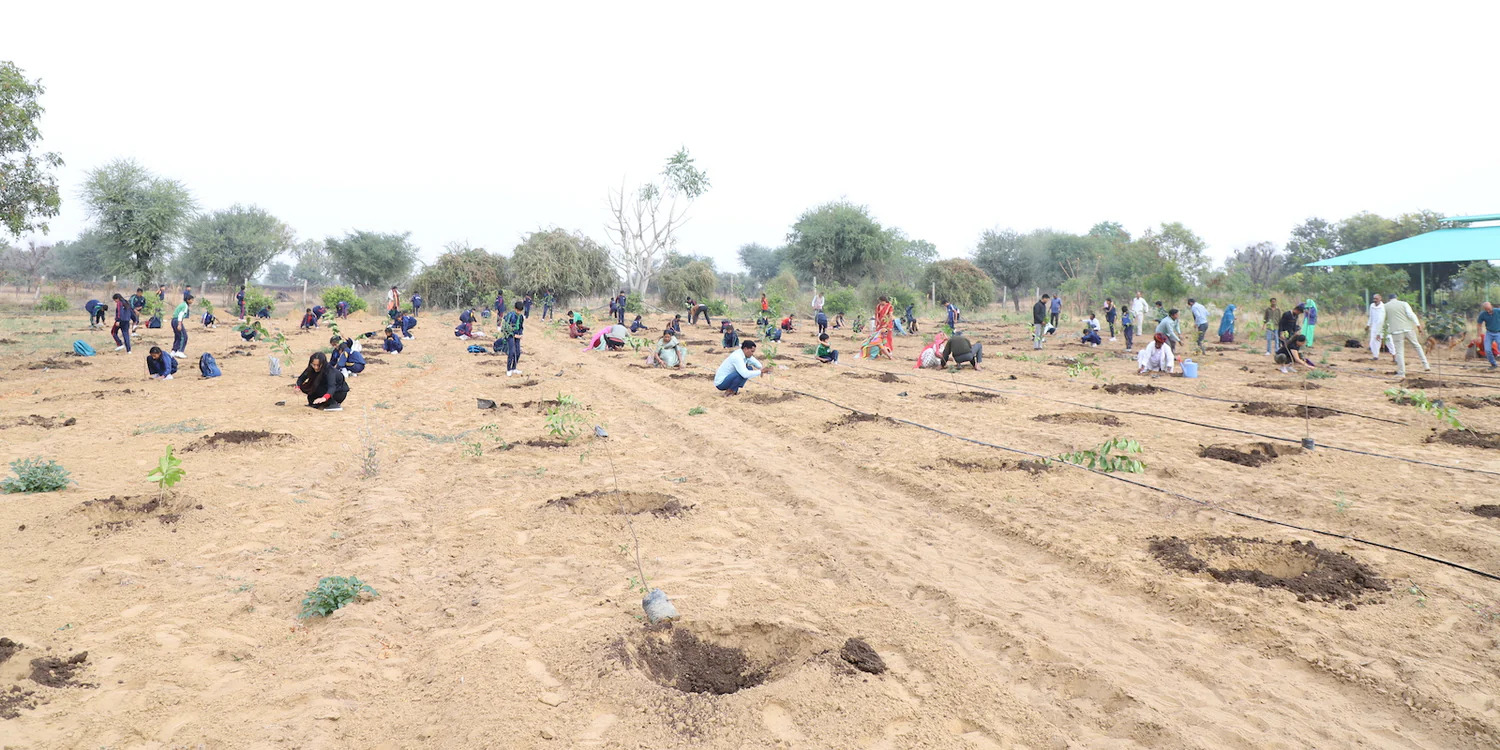Delhi’s Environment Minister joined students in Rajouri Garden today for a moving tree‑planting initiative under the nationwide “Ek Ped Maa Ke Naam” campaign. Held at SKV School, the event saw saplings planted as tributes to mothers and as symbols of environmental stewardship. In a symbolic gesture, students and teachers received saplings from the minister, who called the drive “a deeply emotional campaign that combines gratitude to mothers with planting Delhi’s green cover”.
The effort reflects a growing focus on sustainable, inclusive urban development. Aligned with the national Mission LiFE campaign, Delhi’s schools have restructured all Eco Clubs into “Eco Clubs for Mission LiFE”. Now active across the city, these clubs address energy conservation, waste reduction, plastic avoidance and eco‑friendly habits in daily student life. During the plantation, students recited poetry and shared messages expressive of their bond with nature—earning praise from the minister, who called them “Delhi’s green ambassadors.” A collective pledge was also taken to protect the trees and adopt sustainable practices.
Delhi’s green drive comes at a crucial time. With the city grappling with air‑quality and climate challenges, mass tree‑planting efforts like “Ek Ped Maa Ke Naam” serve more than ecological aims; they embed environmental consciousness in society’s fabric. Policymakers are emphasising community‑led action—especially youth participation—as key to achieving long‑term urban resilience. Formalising this momentum, the Delhi government aims to significantly enhance its green cover. Events such as the Rajouri Garden plantation galvanise public sentiment by linking personal emotional narratives—like honouring mothers—to broader ecological objectives .
This initiative mirrors the national rollout of the “Ek Ped Maa Ke Naam” campaign, first launched by the Prime Minister on World Environment Day 2024, and subsequently expanded in 2025 to include the Aravalli Green Wall project and electric‑bus deployment under green mobility schemes . By planting trees named for mothers, Delhi joins a nationwide ecosystem regeneration effort that already exceeded 80 crore saplings by late 2024. But success lies not just in numbers—it hinges on nurturing these saplings, embedding green habits and institutionalising monitoring frameworks to ensure survival and growth. Notwithstanding the emotive power of today’s planting, experts caution that green campaigns must include follow‑through: maintenance plans, native species selection, and community stewardship are essential, especially in urban spaces facing land‑use pressure .
Critics also cite the need for equitable access to green amenities. Urban greening must address neighbourhood disparities, ensuring parks and tree cover are available across all levels of income and gender‑inclusive zones such as schools, transit hubs and elder‑friendly walks. Today’s planting in Rajouri Garden stands as a promising microcosm. If the momentum extends beyond symbolism—translated into routine planting, care, and green literacy—the city may engineer a shift from ad hoc events to sustained green infrastructure. As Delhi forges ahead with its tree‑planting agenda, the key test will be whether these emotional seedlings grow into evergreen traditions—rooted in community, sustained by policy, and sustained by daily civic engagement. The city’s future, much like its new saplings, depends on what happens after the planting.
Also Read :Goa Bondla zoo back open after three-month closure


